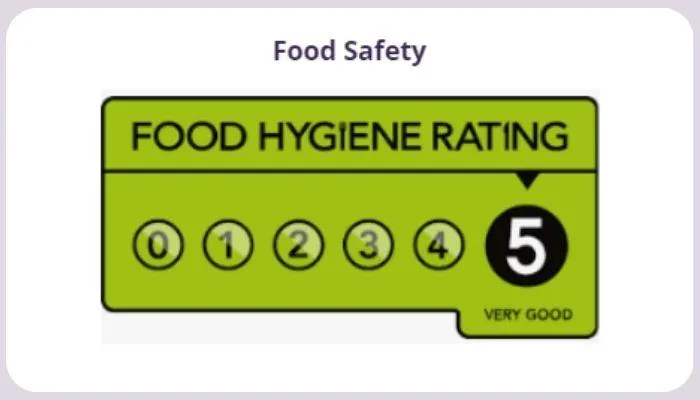Every child's well-being matters.
Case Review Articles
Quick access:
VICTIMS
ADULT ACTIONS
Alison Kelly – data issue
Amina Noor (FGM)
Quick access:
VICTIMS
ADULT ACTIONS
Alison Kelly – data issue
Amina Noor (FGM)

Why is food safety important in the early years?
Food safety is a critical aspect of safeguarding in early years settings, ensuring the health and well-being of young children. Nurseries and preschools have a duty of care to provide safe and nutritious meals while minimising risks such as foodborne illnesses, allergic reactions, and choking hazards. A lack of robust food safety practices can lead to severe consequences, highlighting the need for vigilance and adherence to best practices.
Preventing Foodborne Illnesses
Young children are particularly vulnerable to foodborne illnesses due to their developing immune systems. Poor hygiene during food preparation, improper storage, or cross-contamination can lead to outbreaks of illnesses such as salmonella or E. coli. A high-profile case in 2021 involved children falling ill after consuming contaminated food at a nursery, leading to an investigation and temporary closure. Ensuring that all food is prepared in line with food safety standards, such as the UK’s Food Standards Agency (FSA) guidelines, can help prevent such incidents. Regular staff training in food hygiene and maintaining a clean kitchen environment are essential measures for safeguarding children’s health.
Managing Allergies
Allergic reactions are another critical food safety concern in early years settings. Cases such as the tragic death of Karanbir Cheema in 2017, a 13-year-old boy who suffered a fatal allergic reaction at school after being exposed to cheese, underline the importance of strict allergy management. In nurseries and preschools, staff must know each child’s allergies, ensure meals are free from allergens, and have an effective emergency response plan, including the use of epinephrine auto-injectors. Clear communication with parents and robust record-keeping of allergies can help mitigate risks and ensure all children are protected.
Reducing Choking Hazards
The risk of choking is a significant concern for children in early years settings due to their smaller airways and developing ability to chew and swallow. In 2019, a tragic incident involving a child choking on a piece of food at nursery led to widespread calls for stricter guidelines. To reduce choking risks, nurseries should ensure food is appropriately prepared—cut into small, manageable pieces and avoiding high-risk items such as whole grapes or hard sweets. Staff should also be trained in first aid and know how to respond swiftly if a choking incident occurs.
Practical Safeguarding Measures
To uphold food safety in early years settings, managers and owners can implement the following measures:
Staff Training: Regularly train staff in food hygiene, allergen management, and first aid.
Allergy Management: Maintain up-to-date records of children’s allergies, ensure clear labelling of food, and avoid cross-contamination.
Choking Prevention: Follow guidance on preparing food safely and supervise children during mealtimes.
Hygiene Standards: Adhere to FSA guidelines, maintain clean kitchen facilities, and conduct regular hygiene audits.
Emergency Preparedness: Have clear protocols for managing allergic reactions or choking incidents, including the availability of appropriate equipment and medications.
Food safety is a fundamental part of safeguarding in early years settings, protecting children from preventable risks that can have serious or even fatal consequences. By implementing robust food safety practices, regularly training staff, and fostering a culture of vigilance, nurseries and preschools can ensure the health and well-being of all children in their care. Through proactive management, these environments can be both safe and nurturing, giving children the best start in life.
AUTHOR:- Iona has nearly 10 years of experience supporting nurseries and childminders in curriculum planning, leadership, and safeguarding. Her writing is informed by public information and sector insight, aiming to provide accessible, practical support for professionals working with children. She is part of the On the Button team, helping deliver Well-being, Safeguarding and Complaint Management Software that empowers practitioners to identify concerns early and act confidently.
On the Button provides innovative software tailored to the needs of the early years sector, with a strong focus on EYFS well-being and early years safeguarding. Our tools help senior practitioners to confidently track concerns, maintain robust records, and respond effectively — all while meeting statutory guidance. From early years complaint management to team-wide safeguarding alerts, our platform puts children's safety and emotional health first.

Why is food safety important in the early years?
Food safety is a critical aspect of safeguarding in early years settings, ensuring the health and well-being of young children. Nurseries and preschools have a duty of care to provide safe and nutritious meals while minimising risks such as foodborne illnesses, allergic reactions, and choking hazards. A lack of robust food safety practices can lead to severe consequences, highlighting the need for vigilance and adherence to best practices.
Preventing Foodborne Illnesses
Young children are particularly vulnerable to foodborne illnesses due to their developing immune systems. Poor hygiene during food preparation, improper storage, or cross-contamination can lead to outbreaks of illnesses such as salmonella or E. coli. A high-profile case in 2021 involved children falling ill after consuming contaminated food at a nursery, leading to an investigation and temporary closure. Ensuring that all food is prepared in line with food safety standards, such as the UK’s Food Standards Agency (FSA) guidelines, can help prevent such incidents. Regular staff training in food hygiene and maintaining a clean kitchen environment are essential measures for safeguarding children’s health.
Managing Allergies
Allergic reactions are another critical food safety concern in early years settings. Cases such as the tragic death of Karanbir Cheema in 2017, a 13-year-old boy who suffered a fatal allergic reaction at school after being exposed to cheese, underline the importance of strict allergy management. In nurseries and preschools, staff must know each child’s allergies, ensure meals are free from allergens, and have an effective emergency response plan, including the use of epinephrine auto-injectors. Clear communication with parents and robust record-keeping of allergies can help mitigate risks and ensure all children are protected.
Reducing Choking Hazards
The risk of choking is a significant concern for children in early years settings due to their smaller airways and developing ability to chew and swallow. In 2019, a tragic incident involving a child choking on a piece of food at nursery led to widespread calls for stricter guidelines. To reduce choking risks, nurseries should ensure food is appropriately prepared—cut into small, manageable pieces and avoiding high-risk items such as whole grapes or hard sweets. Staff should also be trained in first aid and know how to respond swiftly if a choking incident occurs.
Practical Safeguarding Measures
To uphold food safety in early years settings, managers and owners can implement the following measures:
Staff Training: Regularly train staff in food hygiene, allergen management, and first aid.
Allergy Management: Maintain up-to-date records of children’s allergies, ensure clear labelling of food, and avoid cross-contamination.
Choking Prevention: Follow guidance on preparing food safely and supervise children during mealtimes.
Hygiene Standards: Adhere to FSA guidelines, maintain clean kitchen facilities, and conduct regular hygiene audits.
Emergency Preparedness: Have clear protocols for managing allergic reactions or choking incidents, including the availability of appropriate equipment and medications.
Food safety is a fundamental part of safeguarding in early years settings, protecting children from preventable risks that can have serious or even fatal consequences. By implementing robust food safety practices, regularly training staff, and fostering a culture of vigilance, nurseries and preschools can ensure the health and well-being of all children in their care. Through proactive management, these environments can be both safe and nurturing, giving children the best start in life.
AUTHOR:- Iona has nearly 10 years of experience supporting nurseries and childminders in curriculum planning, leadership, and safeguarding. Her writing is informed by public information and sector insight, aiming to provide accessible, practical support for professionals working with children. She is part of the On the Button team, helping deliver Well-being, Safeguarding and Complaint Management Software that empowers practitioners to identify concerns early and act confidently.
On the Button provides innovative software tailored to the needs of the early years sector, with a strong focus on EYFS well-being and early years safeguarding. Our tools help senior practitioners to confidently track concerns, maintain robust records, and respond effectively — all while meeting statutory guidance. From early years complaint management to team-wide safeguarding alerts, our platform puts children's safety and emotional health first.
Quality Early Years Ltd.,
Dickens House,
Guithavon Street,
Witham, Essex,
England, CM8 1BJ
© Quality Early Years Ltd 2025

Find On the Button
on Social Media

